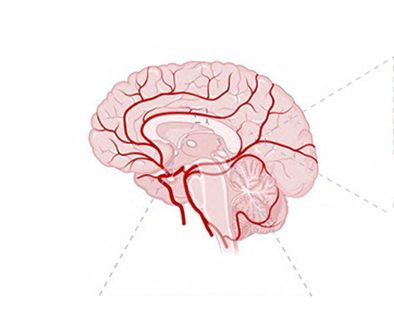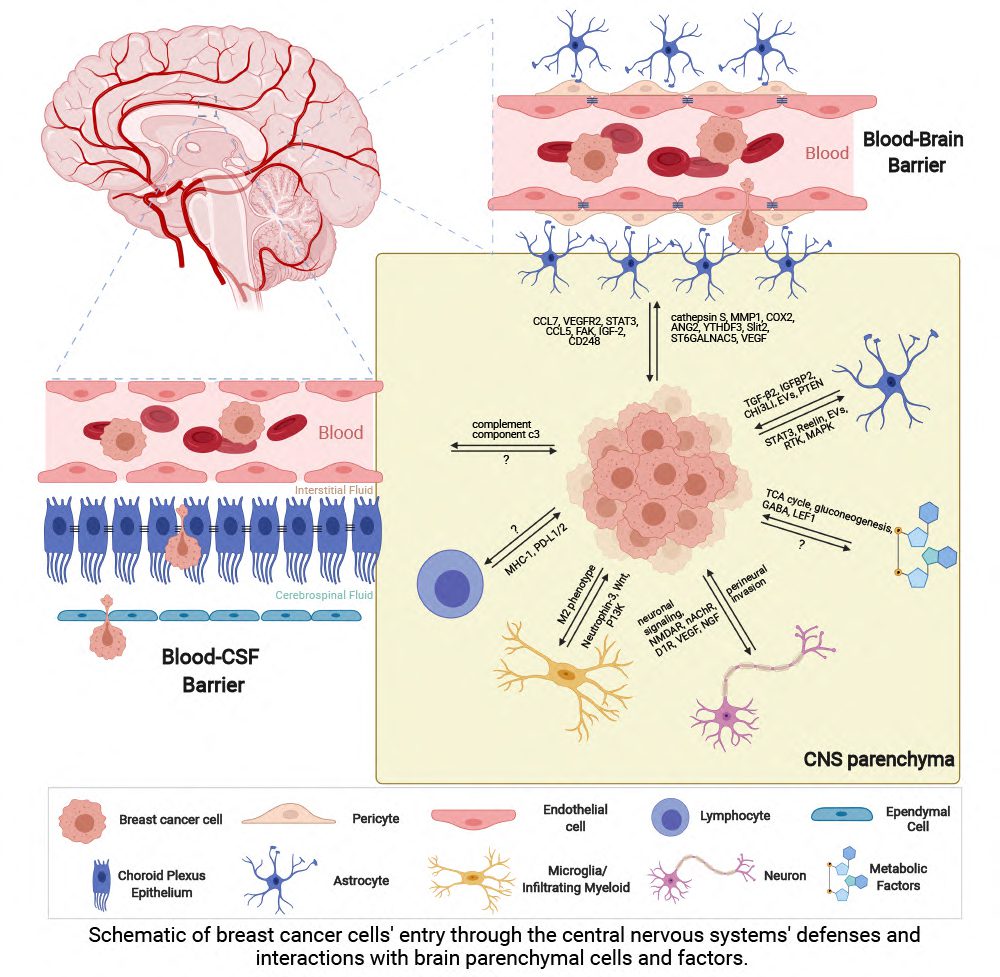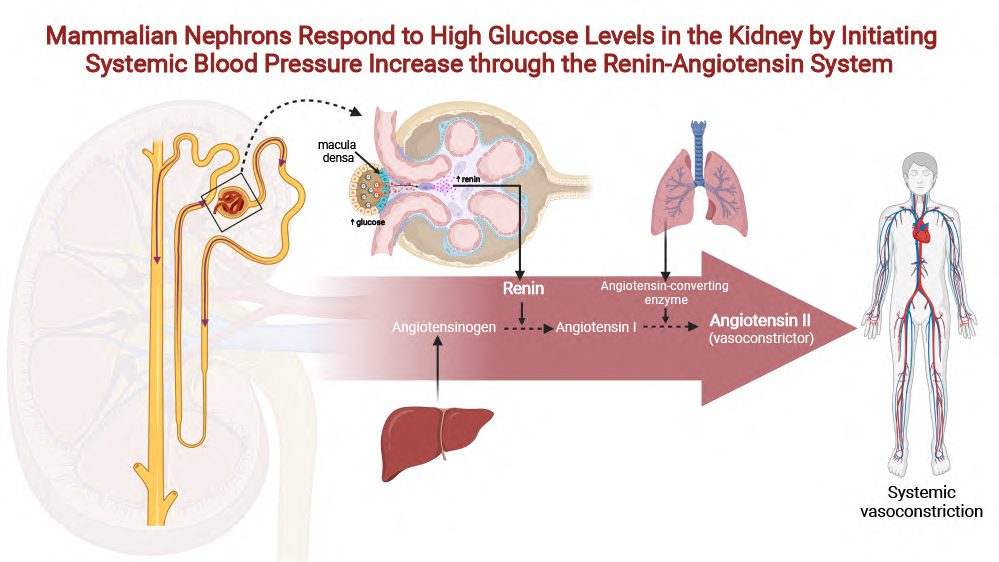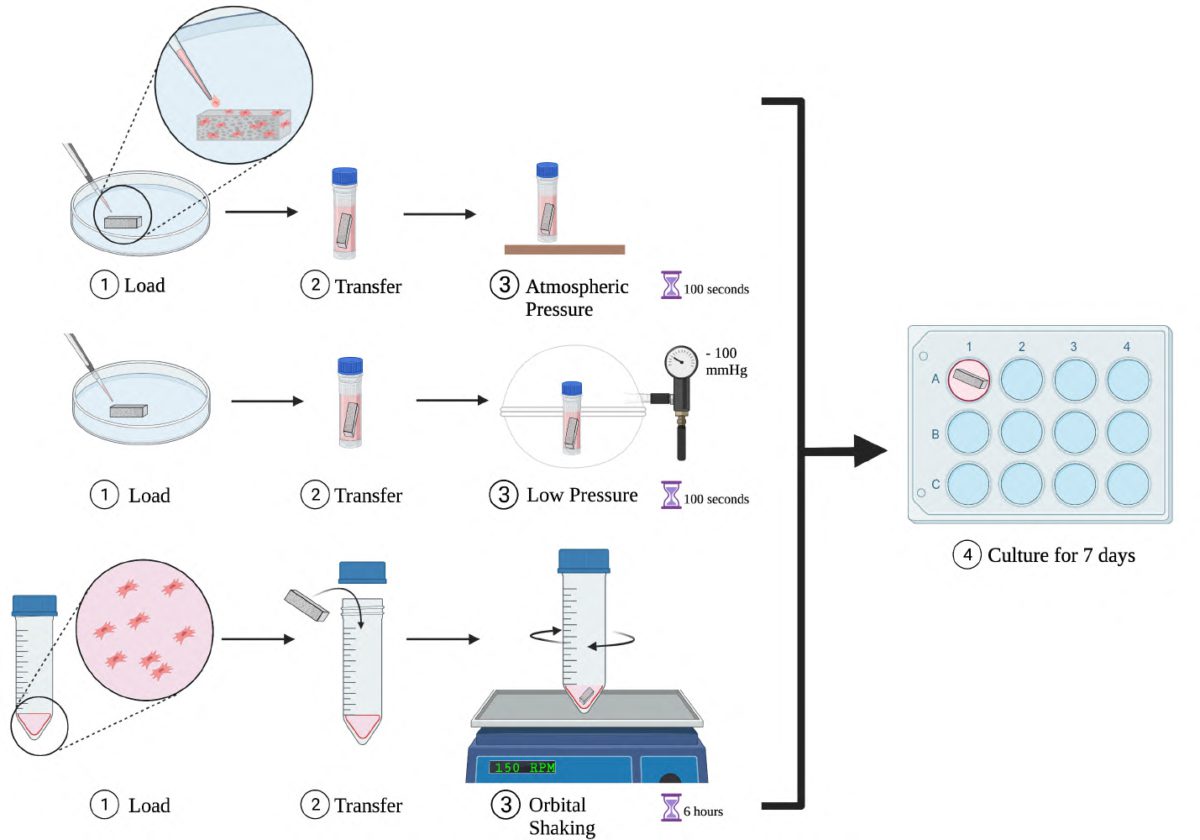
For his graphic on immune cell function in the brain, Mukund Iyer took first place in the Winter 2021 BioRender Illustration competition for his schematic of breast cancer cells’ entry through the central nervous systems’ defenses and interactions with brain parenchymal cells and factors.
“It’s a really well made software,” said Iyer, who is a PhD candidate in the Keck School of Medicine of USC’s cancer biology and genomics program and works in Dr. Josh Nieman’s lab. “I use the software frequently and I think BioRender makes up 50% of my slides [when presenting], especially when I’m explaining methodology.”
He said the organization is the hardest part of the process when using the program to illustrate.
“Figuring out how to put everything on a single slide—because I’m showing a bunch of different things—is challenging,” Iyer said. “I’m showing how tumor cells get in the brain, then how tumor cells colonize the brain and interact with other cell types and factors. So finding a concise way to put that all together on a single graphic without confusing the reader was probably the hardest part.”

Second place was awarded to MaryAnne Achieng, a PhD candidate studying stem cell biology and regenerative medicine. Third place was awarded to Stephanie Chang, a medical student who just completed her third year.
Achieng had already been using the free version of the program before she heard about the contest, and before Keck School of Medicine bought rights for students to use the program.
“I heard about BioRender a couple of years ago when I was working as a research assistant,” Achieng said. “I was using the free version of it for about two years, so I was stoked when USC got a license. The field I’m studying right now, basically the effect of things like hypertension and diabetes is more novel in terms of people’s understanding of how the kidney affects it, so I just kind of wanted to have a simple graphic that shows the relationship between diet and kidney health influencing blood pressure.”

The contest, supported by the Keck School’s Office of Research and USC Stem Cell, showcases the artistic skills of the medical school’s researchers. All faculty, staff, postdocs and students were eligible. Under the rules, contestants must create a design that is aesthetically pleasing and which tells a story with the BioRender software.
Chang started using the program to help illustrate part of a research paper.
“Our [lab’s] paper was showing different cell loading methods that we could use to load cells on to a scaffold,” Chang said. “So we figured the easiest way for the readers to understand what we were doing was to use an image.”

Some labs like the one Iyer works in had previously independently bought access to BioRender. But, a lot more people have started using the program in labs and coursework since the Keck School bought the rights for students to use it, said Iyer.
“I think the contest is another good way to give other students inspiration on how to use BioRender, as well, and discover different ways they can format their figures for their papers,” Iyer said.
